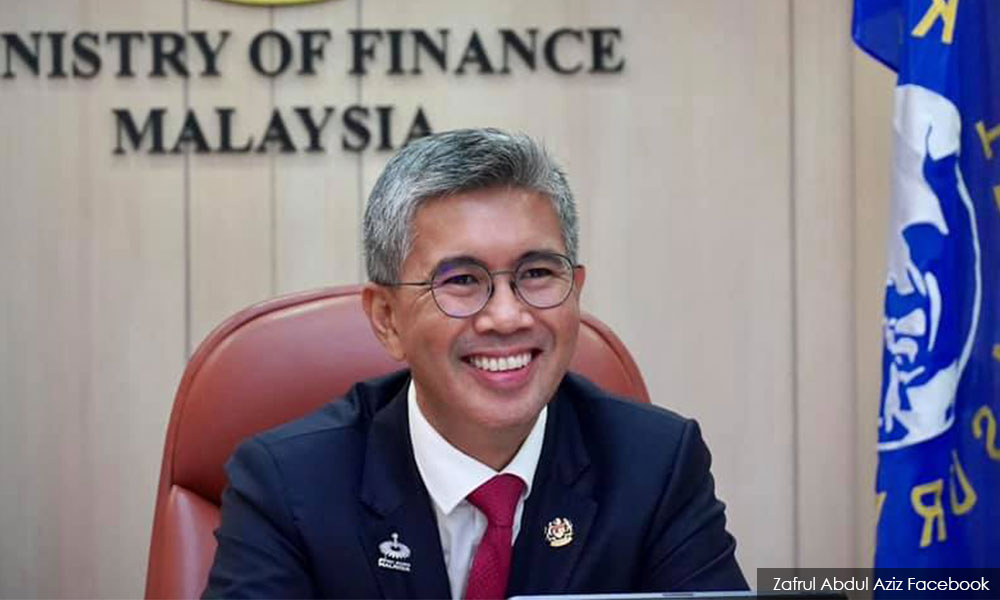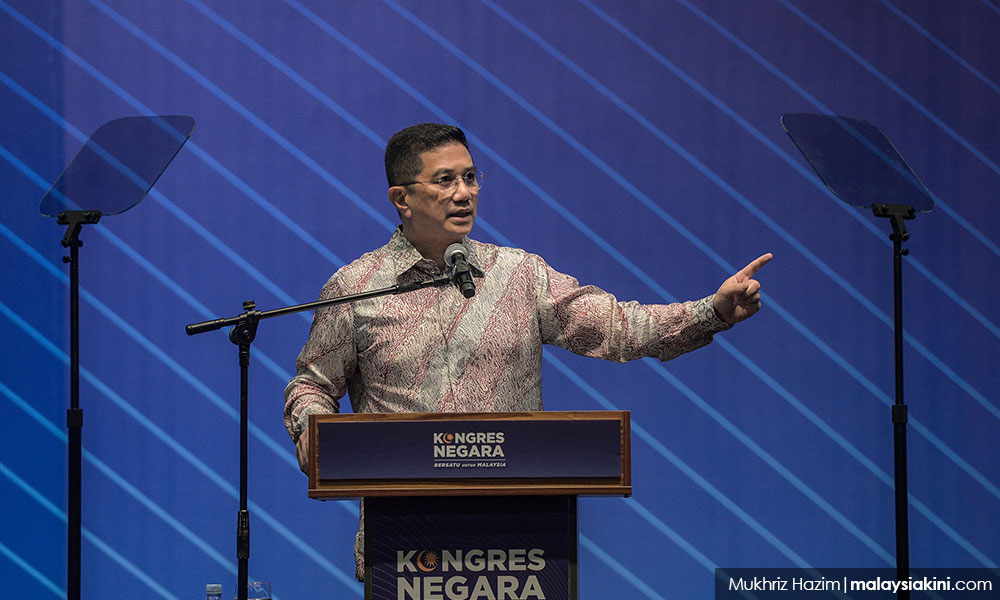MP SPEAKS | The response by EU-Malaysia Chamber of Commerce and Industry (Eurocham) CEO Sven Schneider to Finance Minister Tengku Zafrul Aziz's statement on healthy approved Foreign Direct Investment (FDI) and Domestic Direct Investment (DDI) in Malaysia has gone viral on social media.
I do believe that the problem identified in Schneider's response – not being able to seek an appointment with the finance minister – is part of a larger problem currently faced by long-term investors and companies in Malaysia. He is expressing part of the frustration which many companies are feeling because of the lack of consistent policies by the Perikatan Nasional (PN) government.
The foreign chambers of commerce here in Malaysia value a close and cooperative working relationship with the government of the day. I very much found this to be the case when I was the deputy minister for the international trade and industry ministry (Miti) from July 2018 to February 2020.
There will always be issues that these chambers will raise to the government on behalf of their member companies but seldom will these issues be escalated into the public realm. But under the PN government, the lack of consistent policy has made the already challenging business climate even worse, including for these foreign multinational companies (MNCs).
The hastily implemented first movement control order (MCO) in March 2020 which caused Malaysia’s 2nd quarter 2020 GDP to plummet by 17.1 percent, the haphazard entry ban on all foreign nationals from countries with more than 150,000 cases, and the current uncertainties over what MCO 2.0 will entail are all but examples of the lack of direction and consistency in policymaking under the PN government.
These issues matter much more than before because they will inevitably affect the ability of the approved investments referred to by Zafrul to be realized in the future.
Many of these investment decisions, whether by foreign or domestic investors, would have been planned in the past, probably before the start of the Covid-19 crisis. Companies that have already invested in Malaysia are the best spokespersons to potential investors to the country.
If these companies do not have confidence in the current investment and policy climate, it is likely that potential investors will also be discouraged from realizing their investments in Malaysia in the future.
The weak political leadership of the current PN government stems from the lack of a coherent governing narrative among the parties in power. As much as one would like to criticize the Pakatan Harapan government, there was at least a clear governing narrative – improving governance and transparency, reducing corruption and red tape, and encouraging a more competitive economic landscape.

At least Harapan had a manifesto which we tried our level best to implement. But the current PN government has no governing philosophy or purpose other than to continue to stay in power despite its shaky parliamentary majority.
The effects of this weak political leadership can be felt among the business community. There does not seem to be a coordinated government effort in the fight against the Covid-19 pandemic. The health minister seems to have fully delegated the Covid-19 response to the Health Ministry's director-general.
The human resources minister does not seem to be able to come up with a coherent testing policy among foreign workers in various sectors of the economy. The education ministry has adopted a one-size-fits-all education policy by closing schools even in green zones with very few Covid-19 cases.
The result of this weak political leadership is that the business community has slowly but surely lost confidence in this government’s ability to manage the Covid-19 crisis.
This is why the American Chamber of Commerce in Malaysia (AMCHAM) has called for the continued operations of the business sector especially for the electronics and electrical sector if there is to be an MCO 2.0.
Eurocham has also expressed its concern over the possibility of a full lockdown in MCO 2.0. On the local front, the Federation of Malaysian Manufacturers (FMM), the SME Association of Malaysia, and the Tourism Agencies Association of Malaysia (Mata) have also expressed similar concerns over the economic impact of an MCO 2.0.
Finally, it cannot be denied that one of the major concerns investors in Malaysia are currently facing is the continued political instability and uncertainty. The latest situation is that the PN government only has the support of 110 MPs with news that Umno's Machang MP withdrew his support for the government.

It is ironic that the Miti Minister Azmin Ali, whose ministry is in charge of attracting FDI to Malaysia, was one of the instigators of the Sheraton Move which caused the formation of this unstable PN government.
The Education Minister, Radzi Jidin, who was heard lamenting about foreign investor confidence in Malaysia during the final Harapan meeting which included Bersatu, in February 2020, should ask himself if this confidence has increased under the PN government.
Ahmad Maslan, the new secretary-general of Umno and BN, was recently heard in an interview saying that the slim parliamentary majority of PN will decrease investor confidence in the country. But yet, he is also insisting on an early general election despite the spike of Covid-19 cases in the country.
The questions surrounding FDI and DDI that were raised by the Eurocham Malaysia CEO is but the tip of the iceberg. Do not expect investor confidence to return to Malaysia anytime soon under this PN government. Any future government will have a very challenging time making up for the significant ground that has been lost under this PN government.
ONG KIAN MING is Bangi MP and assistant political education director of the DAP. - Mkini
The views expressed here are those of the author/contributor and do not necessarily represent the views of MMKtT.



No comments:
Post a Comment
Note: Only a member of this blog may post a comment.